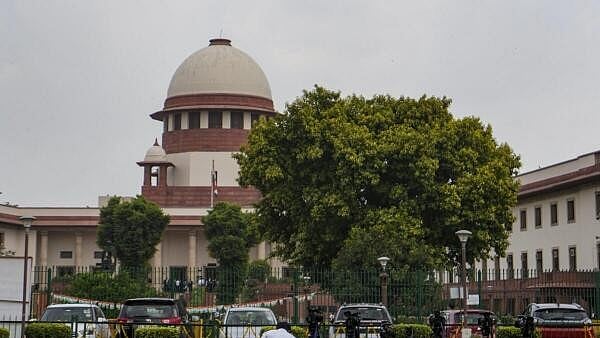
The Supreme Court in New Delhi
Credit: PTI Photo
New Delhi: The Supreme Court on Tuesday said it would commence hearing from October 28 on crucial issues related to factors determining seniority in the cadre of higher judiciary.
A five-judge Constitution bench headed by Chief Justice BR Gavai said the court will also consider all other issues related to career stagnation faced by lower judicial officers across the country, including reference to a larger bench.
The bench also comprising Justices Surya Kant, Vikram Nath, K Vinod Chandran and Joymalya Bagchi appointed the nodal counsels from different sides on the issue of career progression of the judicial officers and said all written submissions shall be filed by October 27.
The five-judge bench passed the order on a batch of pleas, including one filed by the All India Judges Association, on issues related to service conditions, pay scales, and career progression of judicial officers.
On October 7, the top court referred issues related to career stagnation faced by lower judicial officers across the country to a five-judge Constitution bench.
Earlier, the CJI observed that a comprehensive solution is needed to address the limited promotional avenues available to those who join the judiciary at entry-level positions.
The top court had said divergent views had been expressed by several high courts and state governments in their responses to the notices earlier issued by the Supreme Court on the issue.
"Some high courts have taken a view that on account of the prevailing situation, the judges who initially enter the service as civil judge, junior division are not in the position to reach up to the post of district judges," the CJI had said.
The top court had taken note of the "anomalous situation" prevalent in many states, where judicial officers who begin their careers as Judicial Magistrate First Class (JMFC) often retire without ever reaching the post of principal district judge (PDJ), let alone elevation to the high court bench.
However, senior advocate R Basant, representing the opposite view, had contended that such a move would unfairly disadvantage meritorious candidates aspiring for direct recruitment as district judges.